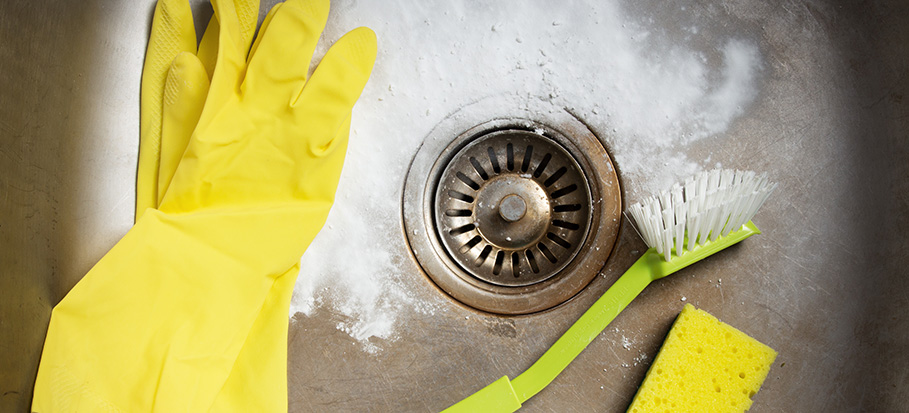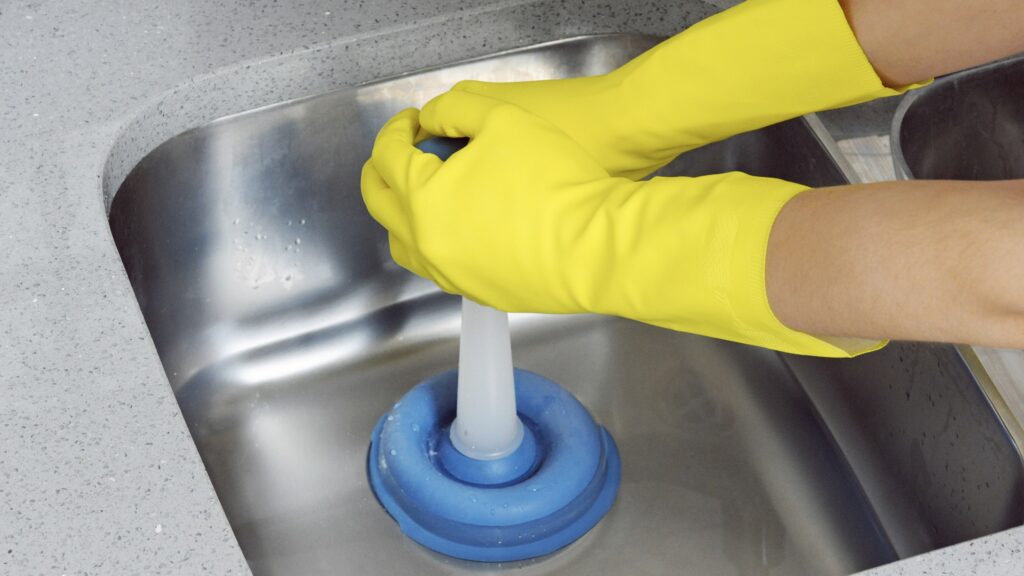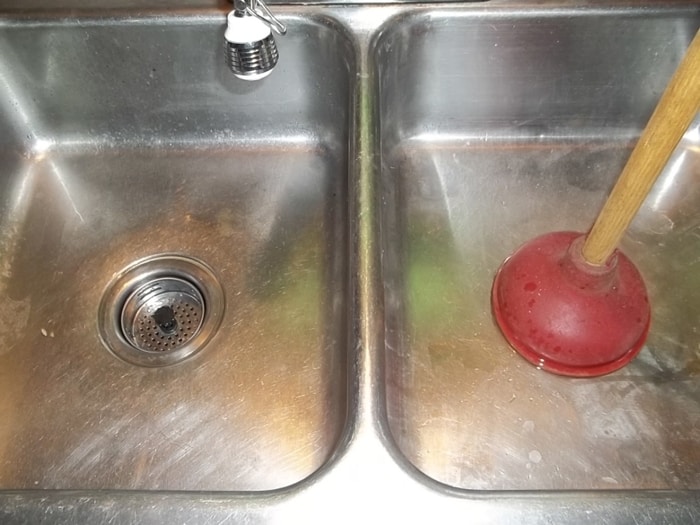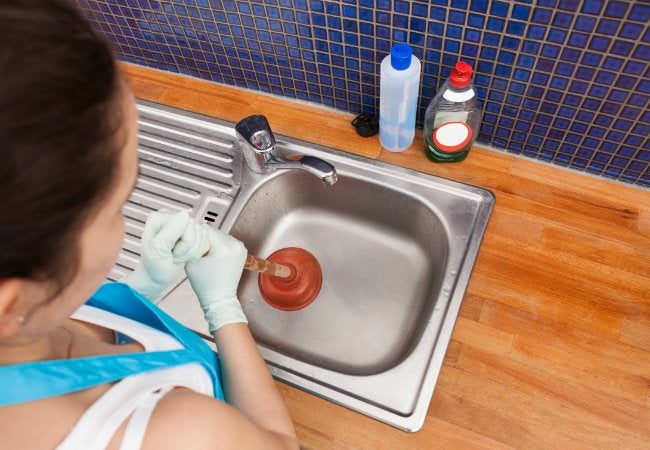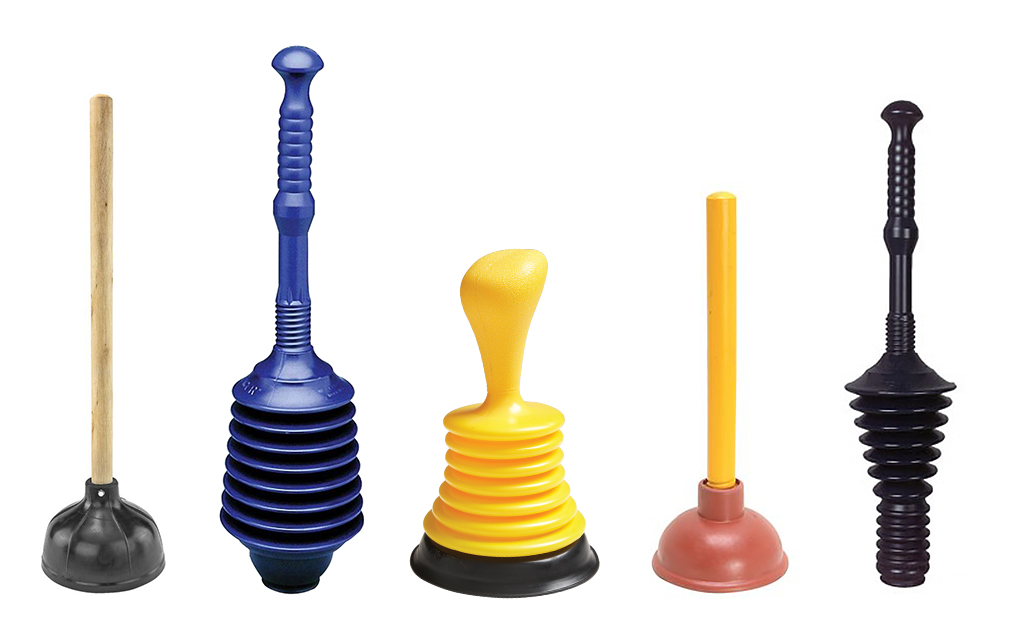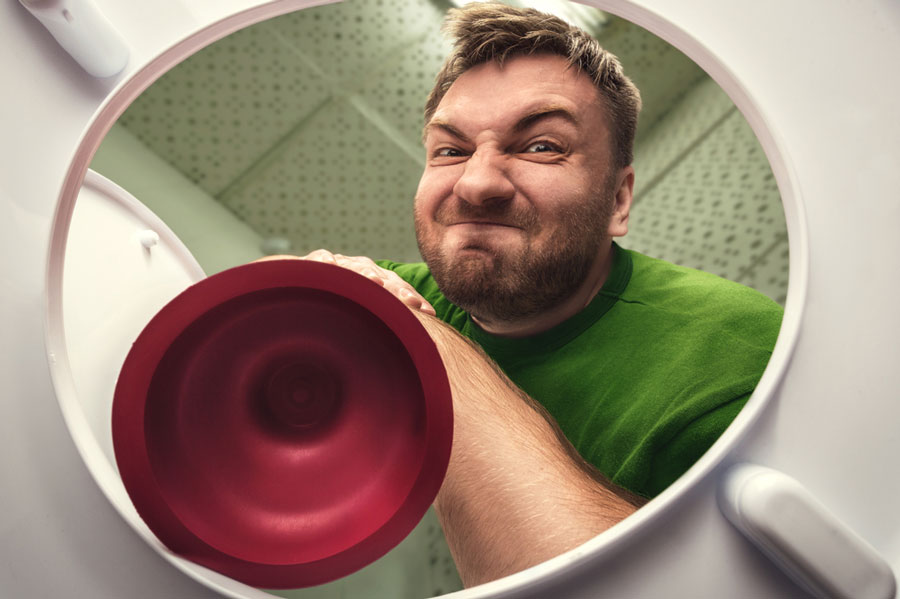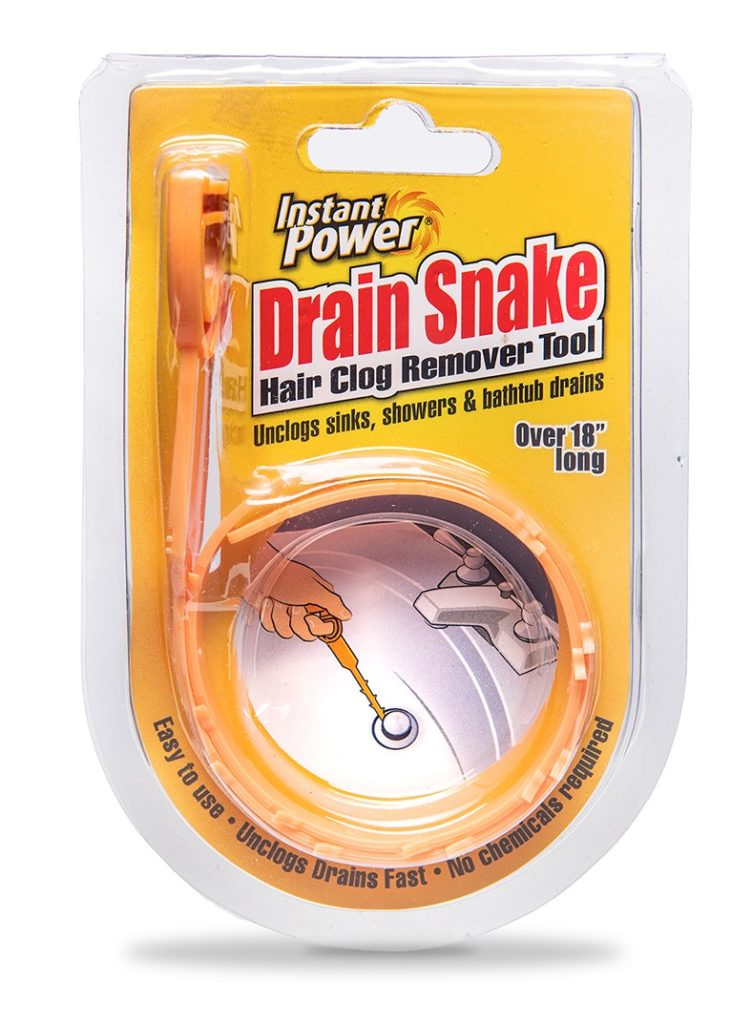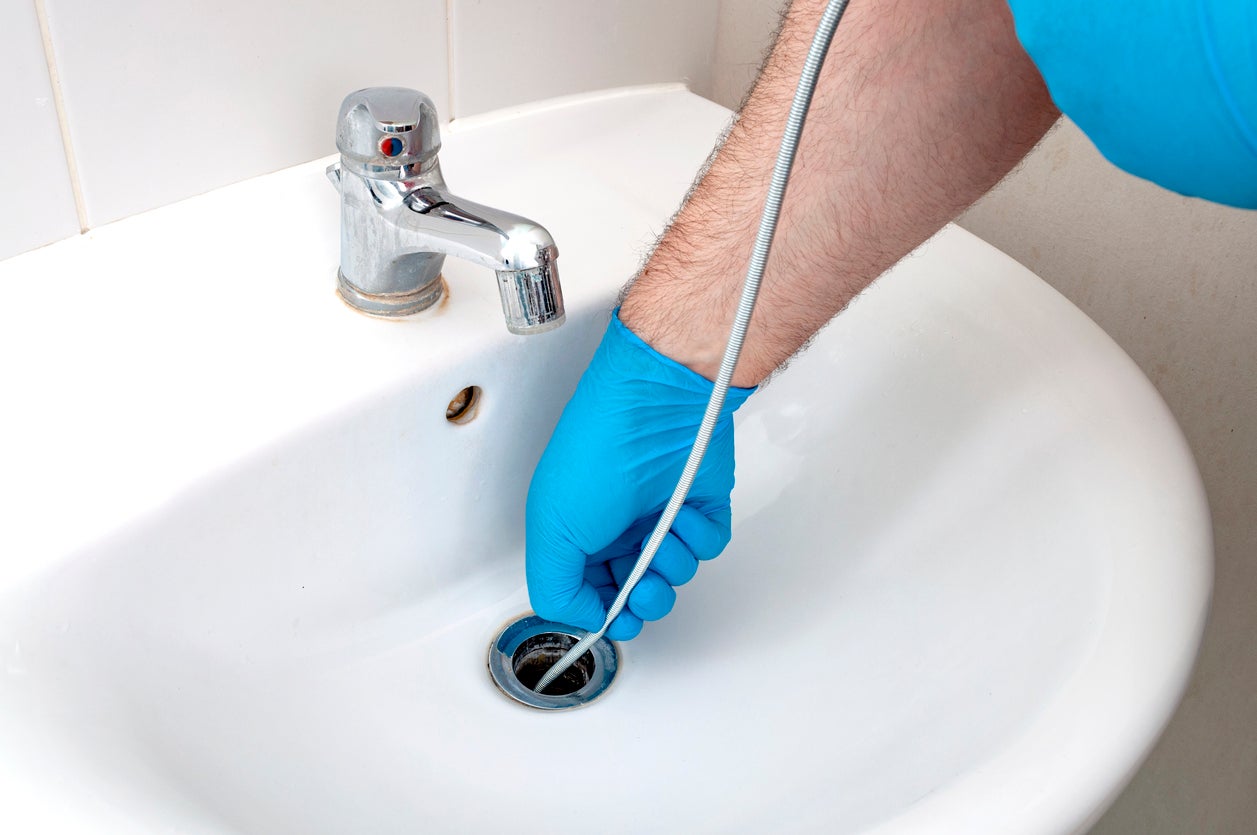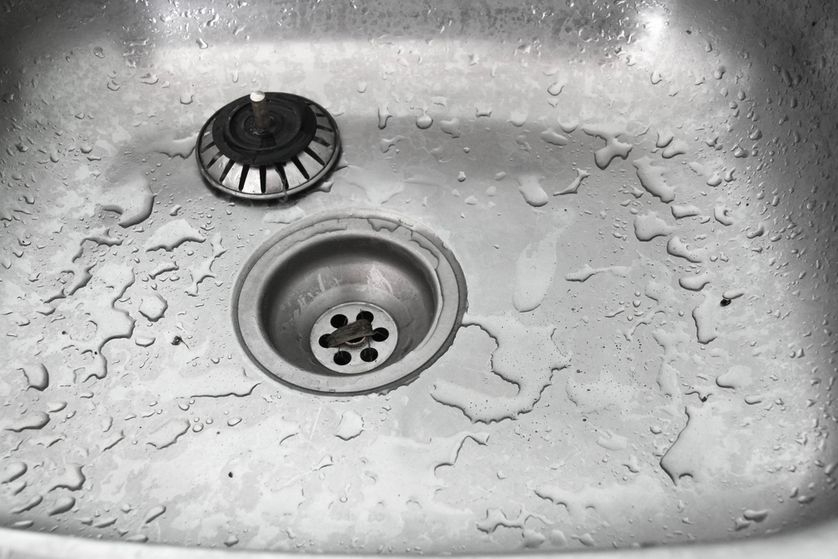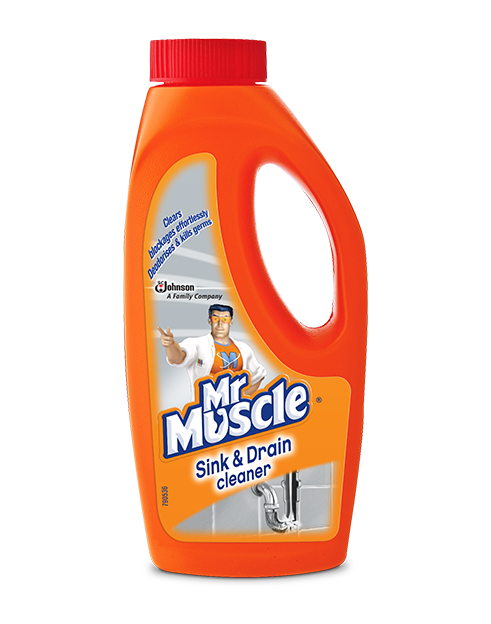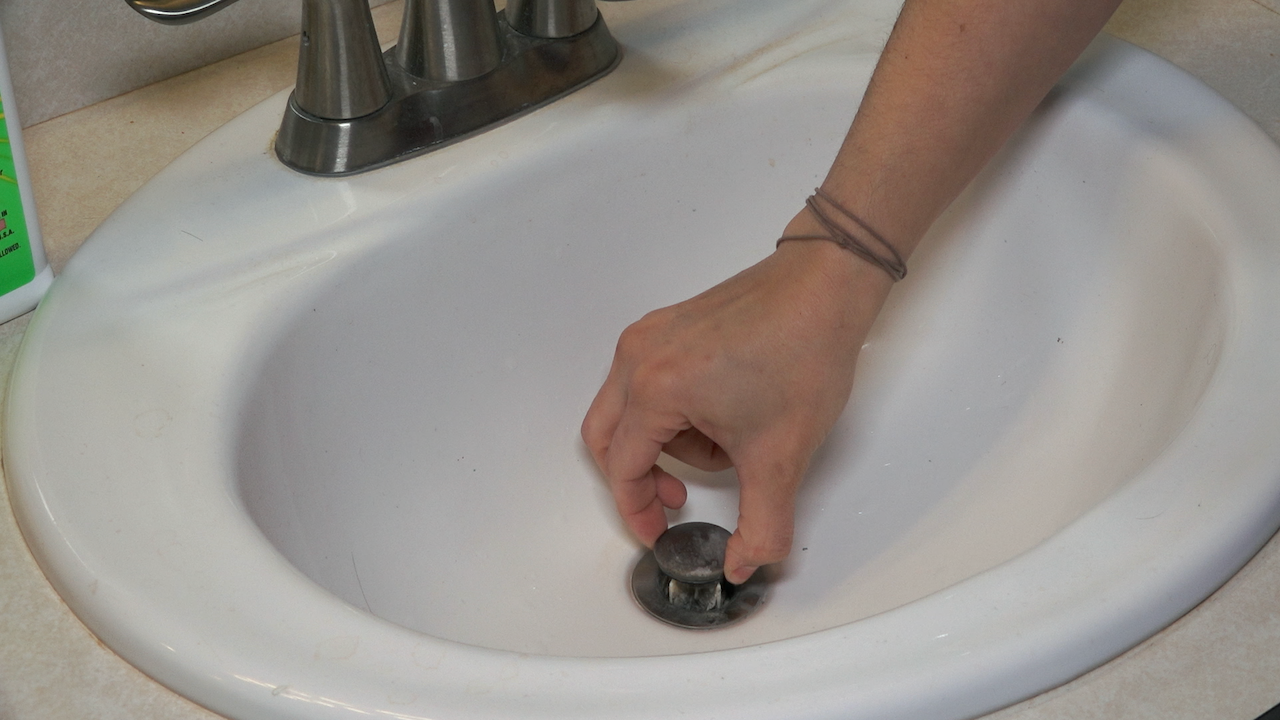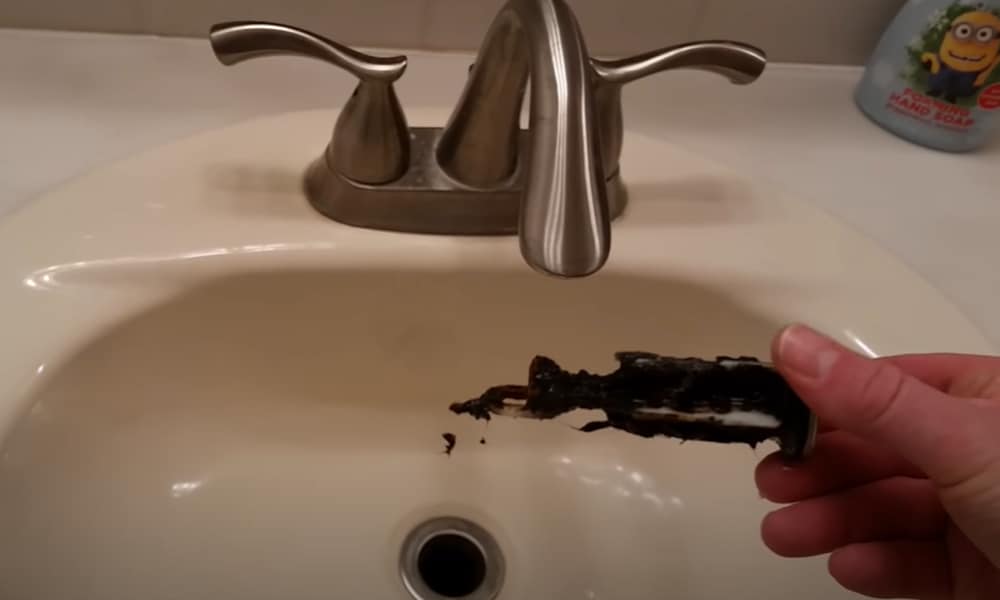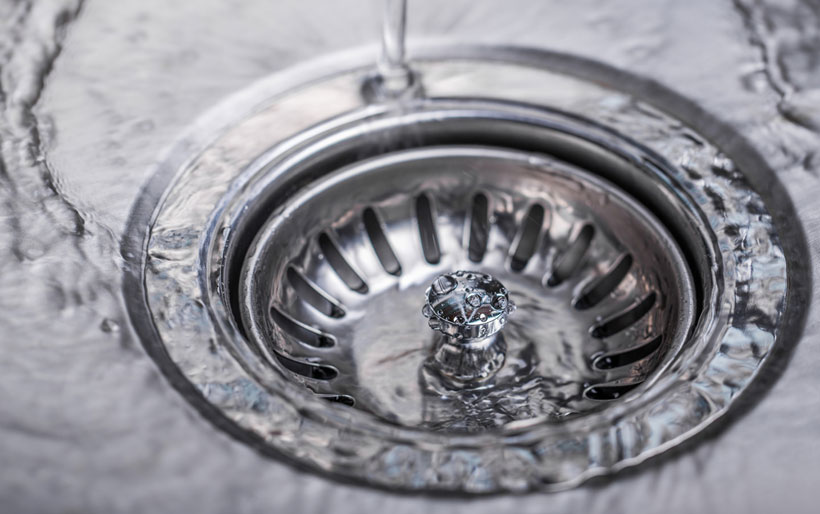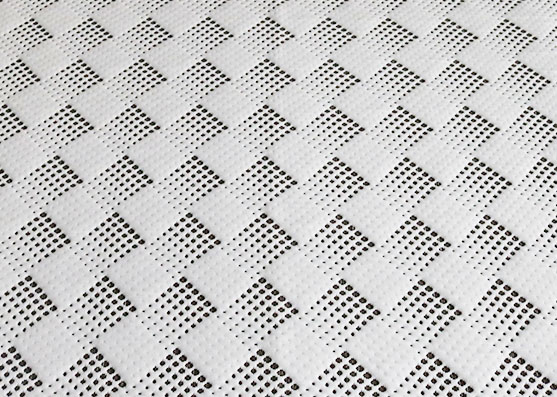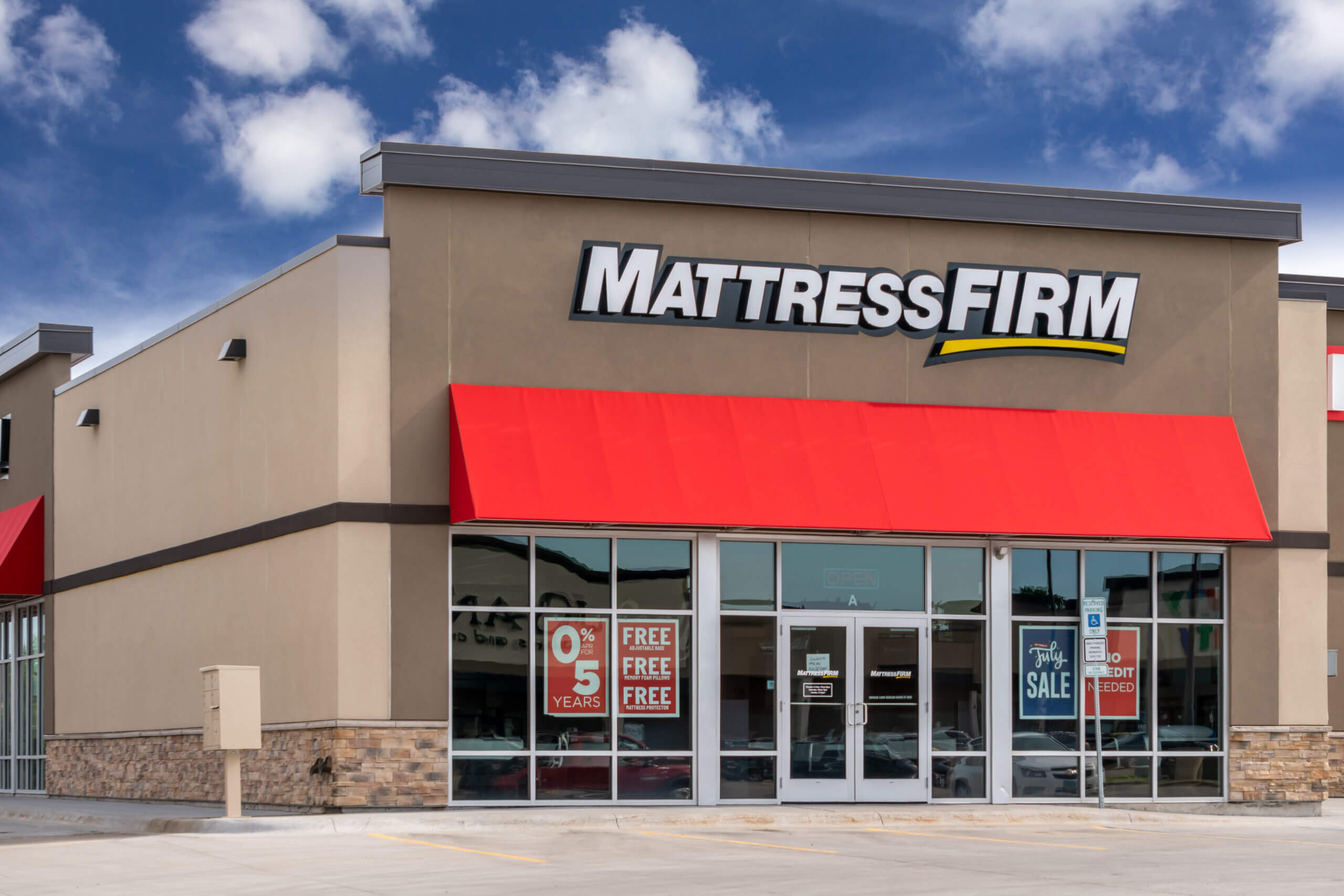How to Fix a Slow-Draining Kitchen Sink
If you've ever experienced the frustration of a slow-draining kitchen sink, you know how inconvenient and messy it can be. Not only does it make washing dishes a hassle, but it also creates a breeding ground for bacteria and unpleasant odors. Luckily, there are several simple solutions to fix a slow-draining kitchen sink and get it back to working properly.
How to Unclog a Kitchen Sink Drain
One of the most common causes of a slow-draining kitchen sink is a clogged drain. This can happen from food scraps, grease buildup, or foreign objects getting stuck in the pipes. To unclog the drain, you can try using a plunger or a drain snake. For a plunger, place it over the drain and push down and pull up several times to create suction. For a drain snake, insert it into the drain and twist and push until you feel the blockage break up.
5 Common Causes of a Slow-Draining Kitchen Sink
Aside from a clogged drain, there are several other reasons why your kitchen sink may be draining slowly. These include a faulty garbage disposal, a partially closed or blocked vent pipe, a damaged or corroded pipe, or a low water pressure issue. It's important to identify the root cause of the problem in order to fix it properly and prevent future issues.
How to Clear a Clogged Kitchen Sink Drain
If the plunger or drain snake don't do the trick, you can try using a homemade drain cleaner to clear out the clog. One effective method is to mix equal parts baking soda and vinegar and pour it down the drain. Let it sit for about 15 minutes, then pour boiling water down the drain to flush out the mixture and any loosened debris.
Why is My Kitchen Sink Draining Slowly?
If you're not sure why your kitchen sink is draining slowly, it's important to do some troubleshooting to find the source of the problem. Start by checking for a clog and trying the cleaning methods mentioned above. If that doesn't work, you may need to call a plumber to inspect the pipes and determine if there is a larger issue at play.
How to Clean a Kitchen Sink Drain
Regularly cleaning your kitchen sink drain can help prevent clogs and keep it draining smoothly. You can use the baking soda and vinegar mixture mentioned earlier, or you can purchase a commercial drain cleaner. Another effective method is to use a plumbing snake to physically remove any buildup or debris from the pipes.
How to Use a Plunger on a Kitchen Sink Drain
If you've never used a plunger on a kitchen sink drain before, it may seem intimidating. However, it's a simple and effective method for clearing out clogs. Make sure to use a plunger specifically designed for sinks, as they have a flat bottom that can create a better seal over the drain. Plunge up and down vigorously for several minutes to try and break up the blockage.
How to Snake a Kitchen Sink Drain
A plumbing snake, also known as a drain auger, is a long, flexible tool used to reach deep into pipes and remove clogs. To snake a kitchen sink drain, insert the tool into the drain and twist and push until you feel resistance. Continue pushing and twisting until the snake breaks through the clog. Then, slowly pull the snake back out, bringing any debris or buildup with it.
How to Prevent a Slow-Draining Kitchen Sink
The best way to deal with a slow-draining kitchen sink is to prevent it from happening in the first place. Some simple prevention methods include regularly cleaning the drain, avoiding putting food scraps or grease down the drain, and using a drain cover to catch any larger objects that could cause clogs. It's also important to properly maintain your garbage disposal to prevent any issues from arising.
How to Remove and Clean a Kitchen Sink Drain Stopper
If your kitchen sink has a drain stopper, it's important to clean it regularly to prevent buildup and ensure proper drainage. To remove the stopper, locate the pivot rod under the sink and unscrew it. Then, you can remove the stopper and clean it with hot water and soap. Make sure to also clean the drain opening before reattaching the stopper and pivot rod.
In conclusion, dealing with a slow-draining kitchen sink can be a hassle, but with the right knowledge and tools, it can be easily fixed. Whether you need to unclog a drain, clean the pipes, or prevent future issues, these tips and methods will help keep your kitchen sink draining smoothly and efficiently. Don't let a slow-draining sink disrupt your daily routine – take action and get it back in working order today.
Why Your Kitchen Sink Drains Really Slow and How to Fix It
:max_bytes(150000):strip_icc()/how-to-install-a-sink-drain-2718789-hero-24e898006ed94c9593a2a268b57989a3.jpg)
The Importance of Proper Drainage in Your Kitchen
 When it comes to house design, proper drainage is often overlooked. However, it plays a crucial role in maintaining a functional and healthy home. In the kitchen, the sink is one of the busiest areas and its drainage system is constantly in use. So, when your kitchen sink drains really slow, it can be a frustrating and inconvenient problem. But, what causes this issue and how can you fix it?
When it comes to house design, proper drainage is often overlooked. However, it plays a crucial role in maintaining a functional and healthy home. In the kitchen, the sink is one of the busiest areas and its drainage system is constantly in use. So, when your kitchen sink drains really slow, it can be a frustrating and inconvenient problem. But, what causes this issue and how can you fix it?
Common Causes of Slow Kitchen Sink Drains
/how-to-install-a-sink-drain-2718789-hero-b5b99f72b5a24bb2ae8364e60539cece.jpg) There are several reasons why your kitchen sink drains may be running slow. One of the most common causes is a clogged drain. Over time, food particles, grease, and other debris can build up in your drain, causing blockages that slow down the flow of water. Another common culprit is a clogged or damaged garbage disposal. If your garbage disposal is not working properly, it can lead to slow drainage in your sink.
Another possible cause of slow kitchen sink drains is a faulty or incorrectly installed plumbing system. If the pipes in your kitchen are not angled correctly, it can cause water to pool and slow down the drainage process. Additionally, old or corroded pipes can also contribute to slow draining. These issues may require the assistance of a professional plumber to properly diagnose and fix.
There are several reasons why your kitchen sink drains may be running slow. One of the most common causes is a clogged drain. Over time, food particles, grease, and other debris can build up in your drain, causing blockages that slow down the flow of water. Another common culprit is a clogged or damaged garbage disposal. If your garbage disposal is not working properly, it can lead to slow drainage in your sink.
Another possible cause of slow kitchen sink drains is a faulty or incorrectly installed plumbing system. If the pipes in your kitchen are not angled correctly, it can cause water to pool and slow down the drainage process. Additionally, old or corroded pipes can also contribute to slow draining. These issues may require the assistance of a professional plumber to properly diagnose and fix.
How to Fix a Slow-Draining Kitchen Sink
 Fortunately, there are some steps you can take to fix a slow-draining kitchen sink on your own. First, try using a plunger to clear any blockages in the drain. If that doesn't work, you can also try using a homemade drain cleaner made of vinegar and baking soda. Simply pour a cup of baking soda down the drain, followed by a cup of vinegar. Let it sit for a few minutes before flushing it with hot water.
If these DIY methods don't work, it may be time to call a professional plumber. They have the tools and expertise to thoroughly clean out your drain and fix any underlying issues that may be causing the slow drainage.
Fortunately, there are some steps you can take to fix a slow-draining kitchen sink on your own. First, try using a plunger to clear any blockages in the drain. If that doesn't work, you can also try using a homemade drain cleaner made of vinegar and baking soda. Simply pour a cup of baking soda down the drain, followed by a cup of vinegar. Let it sit for a few minutes before flushing it with hot water.
If these DIY methods don't work, it may be time to call a professional plumber. They have the tools and expertise to thoroughly clean out your drain and fix any underlying issues that may be causing the slow drainage.
Preventing Future Slow Drains
 To prevent your kitchen sink drains from running slow in the future, it's important to practice regular maintenance. This includes regularly cleaning out your drains, avoiding pouring grease and food scraps down the sink, and using a drain strainer to catch any debris before it goes down the drain.
In addition, be mindful of what you put through your garbage disposal. Avoid putting fibrous or starchy foods, as well as coffee grounds, down the disposal as they can cause clogs. Also, make sure to run plenty of water while using the disposal to help flush everything down.
In conclusion, a slow-draining kitchen sink is not only an inconvenience but also a sign of a bigger issue. By understanding the common causes and taking preventative measures, you can keep your kitchen sink draining smoothly and maintain a functional and healthy home. But, if the problem persists, don't hesitate to seek the help of a professional plumber for a proper fix.
To prevent your kitchen sink drains from running slow in the future, it's important to practice regular maintenance. This includes regularly cleaning out your drains, avoiding pouring grease and food scraps down the sink, and using a drain strainer to catch any debris before it goes down the drain.
In addition, be mindful of what you put through your garbage disposal. Avoid putting fibrous or starchy foods, as well as coffee grounds, down the disposal as they can cause clogs. Also, make sure to run plenty of water while using the disposal to help flush everything down.
In conclusion, a slow-draining kitchen sink is not only an inconvenience but also a sign of a bigger issue. By understanding the common causes and taking preventative measures, you can keep your kitchen sink draining smoothly and maintain a functional and healthy home. But, if the problem persists, don't hesitate to seek the help of a professional plumber for a proper fix.
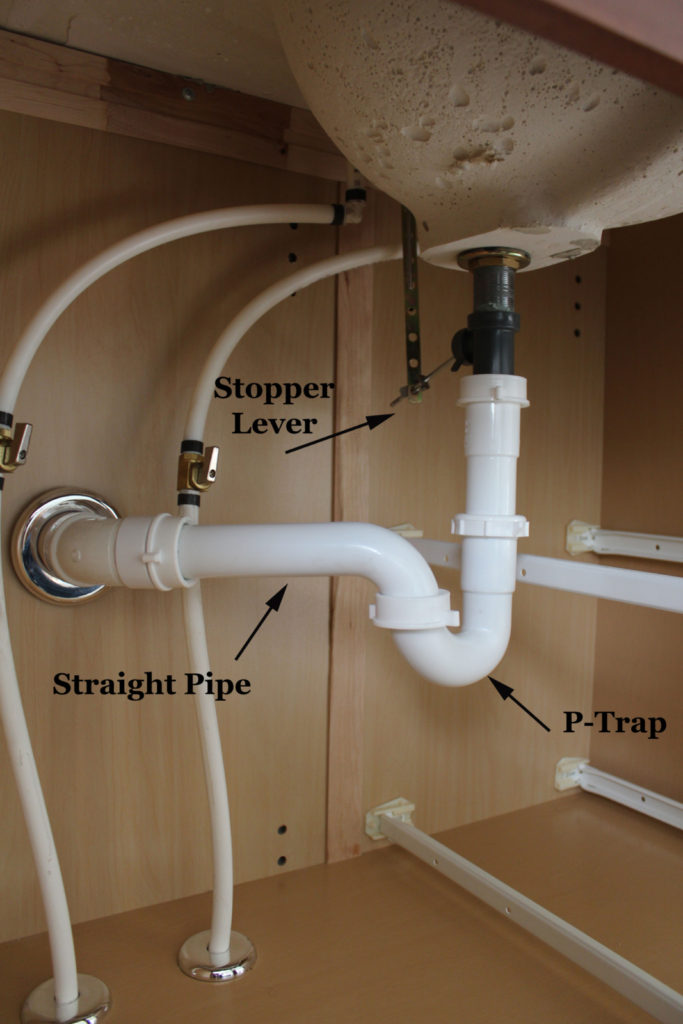









:max_bytes(150000):strip_icc()/plumber-unclogging-kitchen-sink-169270382-5810e7bb5f9b58564c5dd92b.jpg)



:max_bytes(150000):strip_icc()/freshen-and-unclog-drain-with-baking-soda-1900466-22-bbf940b70afa4d5abef0c54da23b1d3f.jpg)





/how-to-unclog-a-kitchen-sink-2718799_sketch_FINAL-8c5caa805a69493ab22dfb537c72a1b7.png)






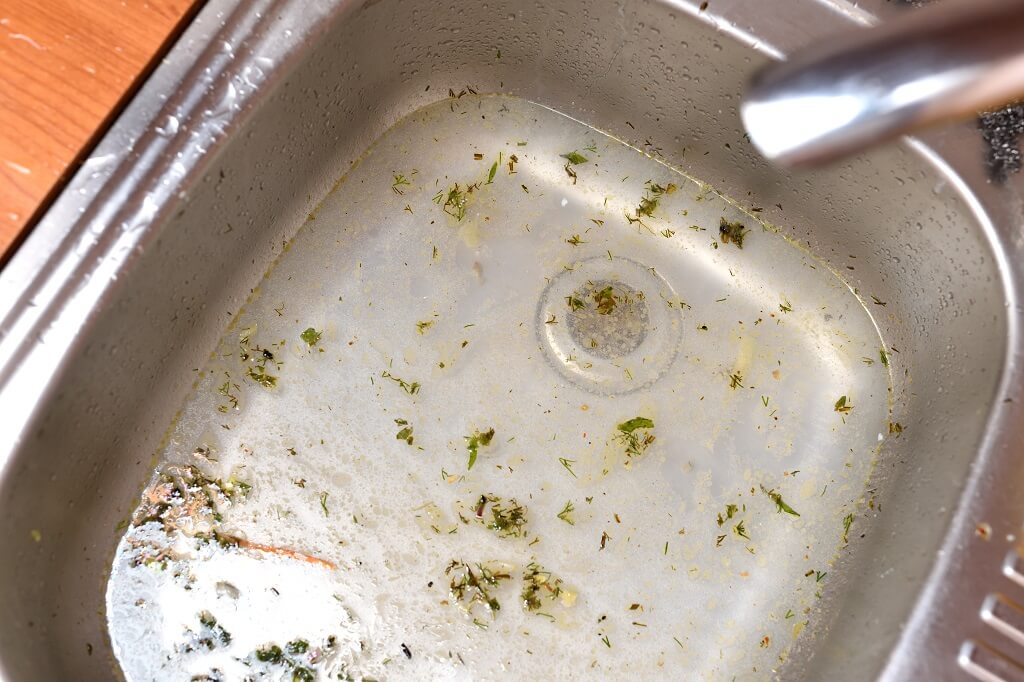














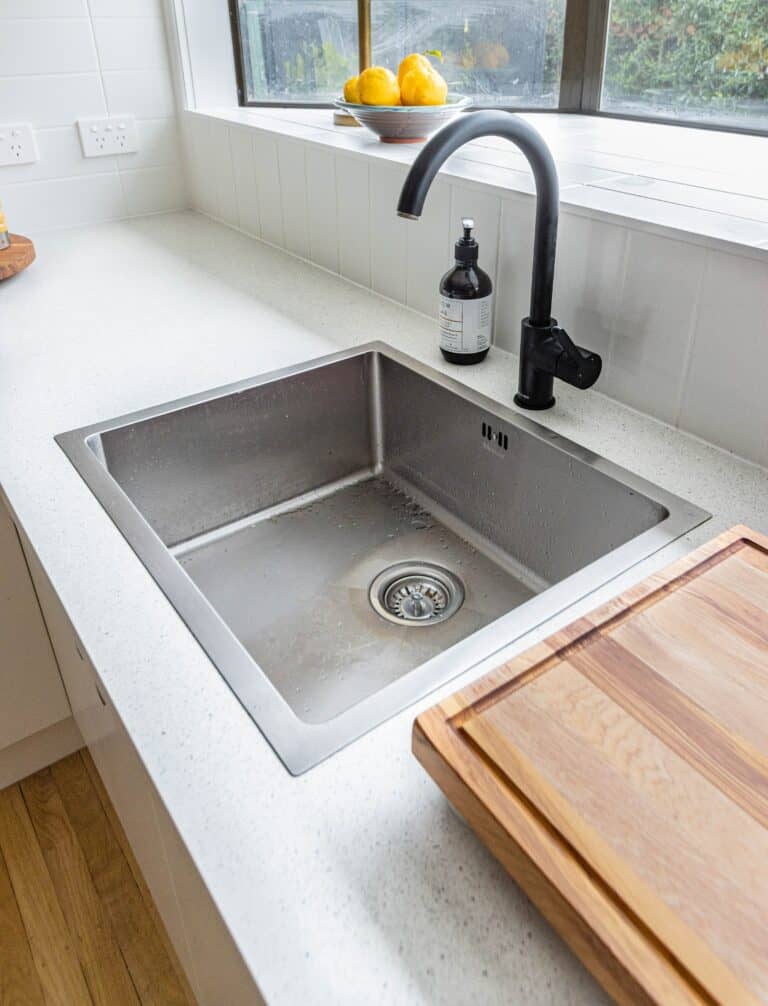






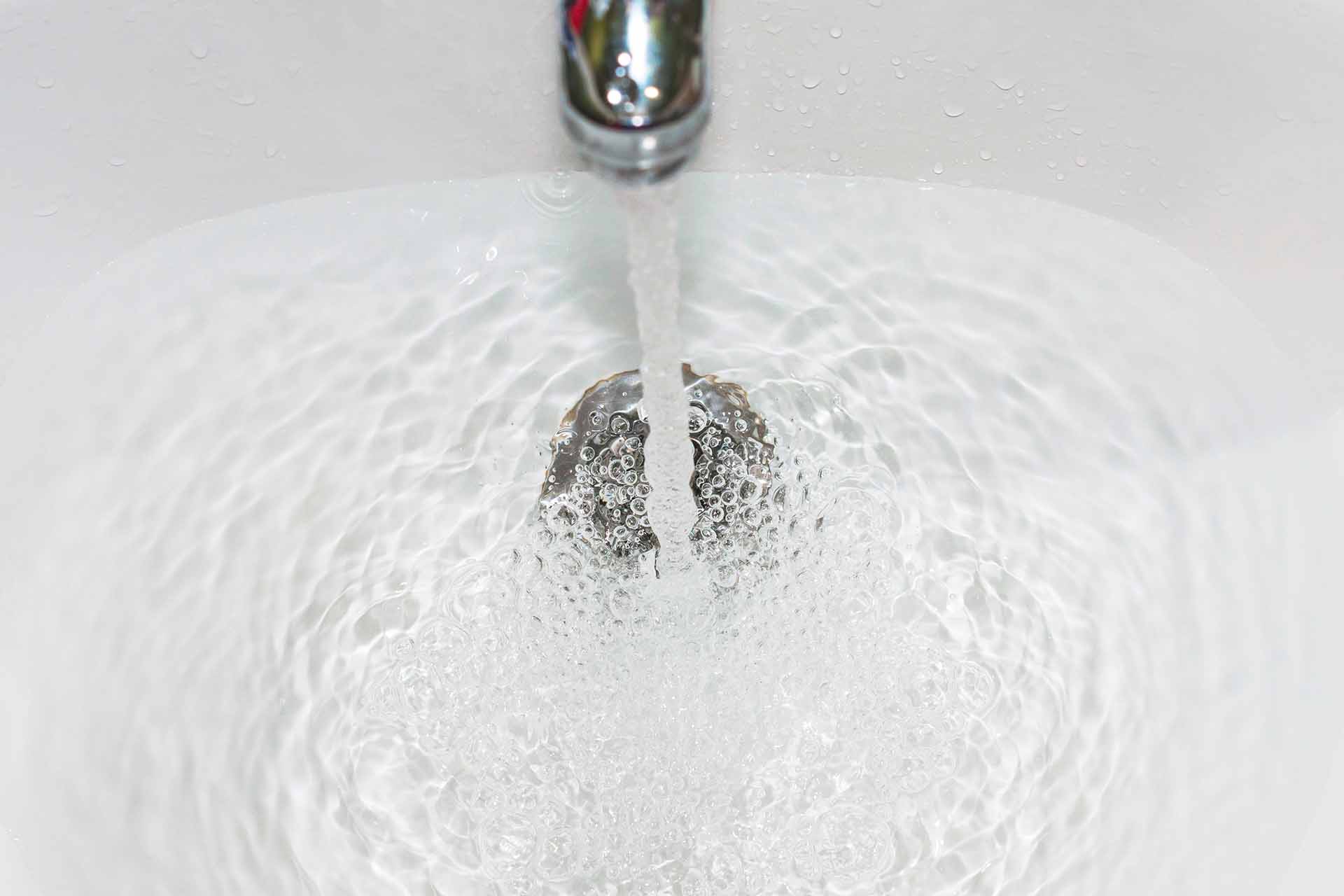
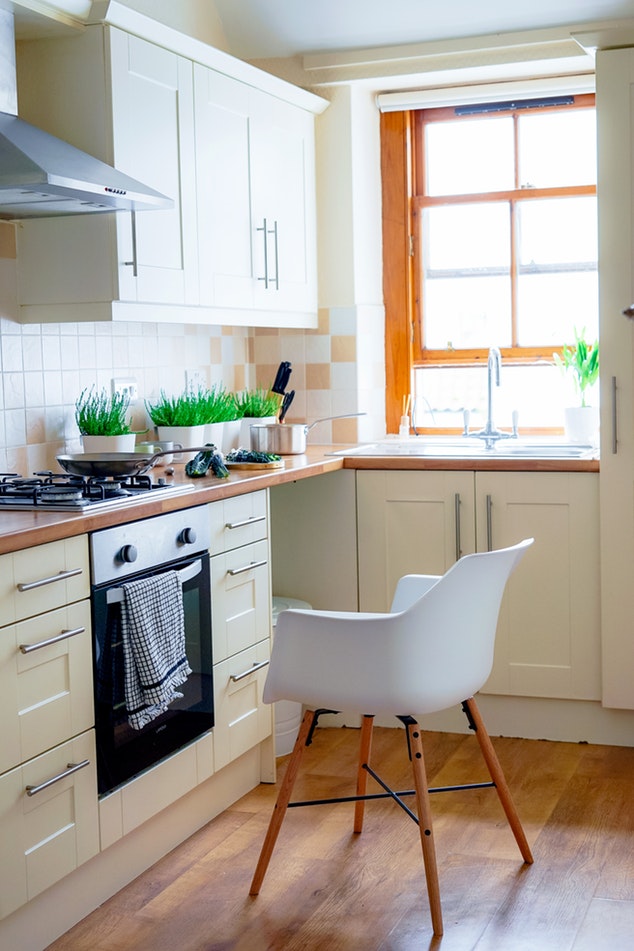


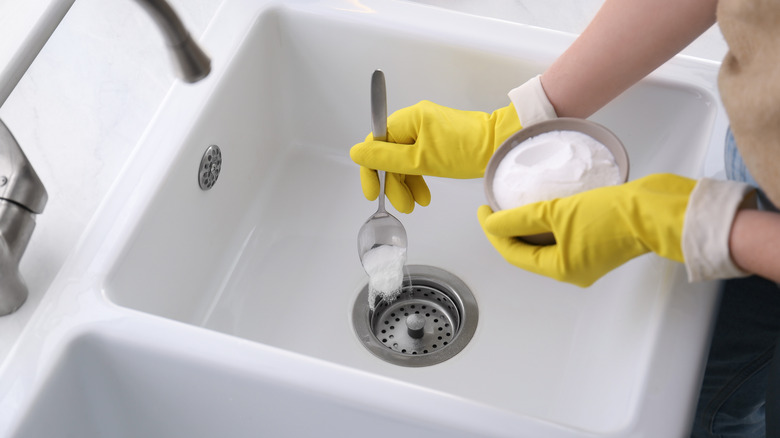



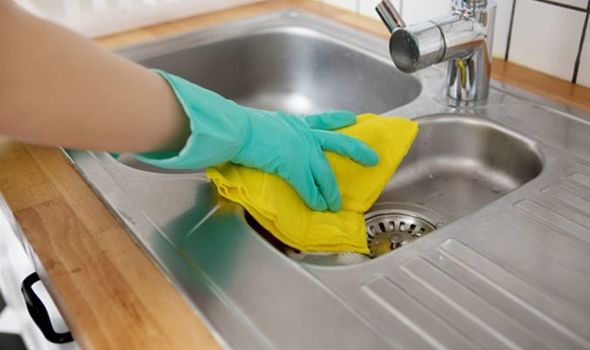
:max_bytes(150000):strip_icc()/how-to-clean-a-kitchen-sink-and-drain-01-5660035-a1d8afe3894346f9a579e66c55e64b7d.jpg)
